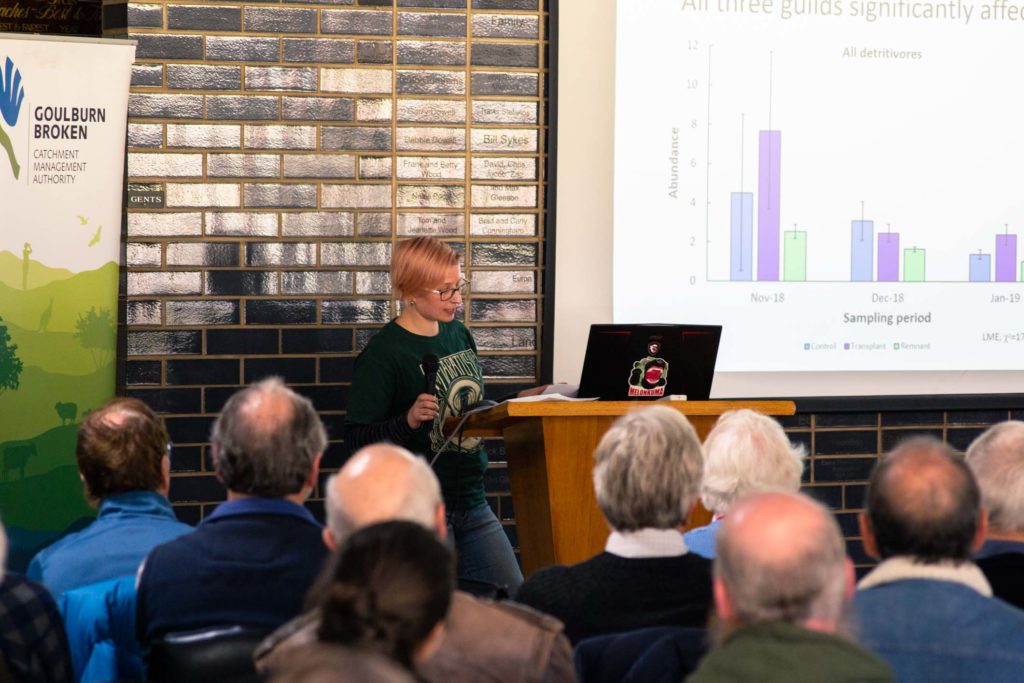Abstract from the Under the Microscope Research Day 2019. Latrobe University.
Ecosystem restoration is essential in returning degraded habitat and biodiversity to its former state. Current methods focus on limited components of ecosystems, often overlooking invertebrates, which are critical to ecosystem functioning. Macrodetritivores play a key role in decomposition, a vital ecosystem process affecting soil nutrient cycling and plant community structure.
We investigated whether leaf litter and soil transplants from remnant vegetation improve macrodetritivore biodiversity and litter decomposition in revegetated agricultural land. We compared macroinvertebrate communities and litter decomposition among replicate sites (n=6) of untreated ‘control’ revegetation, revegetation with transplants, and remnant vegetation. Using litter sampling and litter bags over a period of three months, we tested the response of macrodetritivores and litter decomposition to transplants. Macrodetritivore abundance, species richness and community composition showed no effect of treatment.
However, extreme heat and drought during summer may have reduced abundances, making it difficult to detect change over the limited sampling period. Further, soil moisture in remnant sites was much higher than in revegetation, suggesting that abiotic conditions might limit colonisation success. Decomposition rates were greater in transplant sites than in controls, indicating that transplants enhanced decomposition, possibly through unmeasured components of the biota, e.g. microdetritivores and microbes. Although increased decomposition rates suggest positive effects of transplants, it is likely too early to tell whether transplants are an effective method of restoration.
Longer term monitoring, in addition to closer investigation of microdetritivores and microbes will provide a more conclusive answer as to whether and how litter and soil transplants can improve restoration success.

